detail profile ljubomir c4 86iprani c4 87
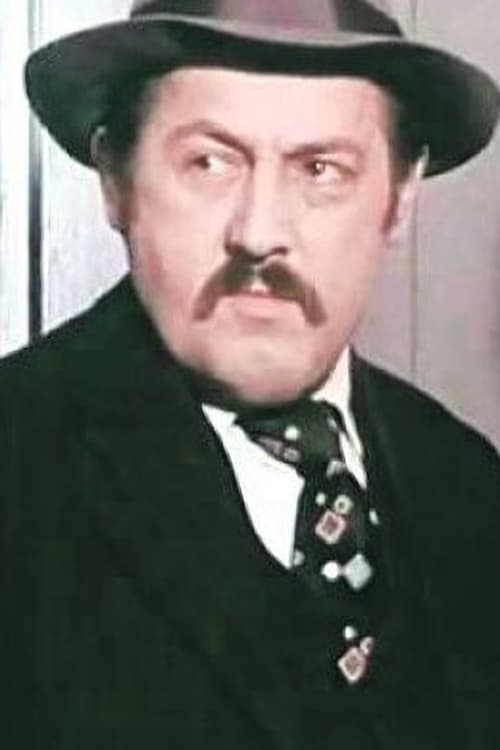
Riwayat Hidup
Ljubomir Ćipranić (9 April 1936 – 24 December 2010) was a Serbian actor.
He appeared in over 160 films and television shows since 1959.
He starred in the 1967 film The Rats Woke Up, which won the Silver Bear for Best Director at the 17th Berlin International Film Festival.
Info Pribadi
Peran Yang Di Mainkan Ljubomir Ćipranić
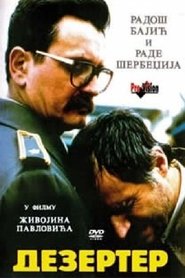 During the Yugoslav breakup Federal Army...
During the Yugoslav breakup Federal Army...Deserter 1992
During the Yugoslav break-up, Federal Army officer is fed up with war and takes some leave in Belgrade. However, it turns out that he is less haunted by war horrors than with some sentimental skeletons in the closet. He meets his former comrade and best friend who is AWOL, but can't report him because he had an affair with his wife.
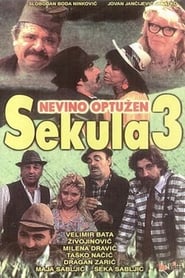 This time Sekula does not have...
This time Sekula does not have...Sekula Innocent Accused 1992
This time Sekula does not have any problems with women but is accused of stealing electricity.
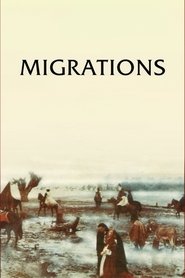 Based on the famous novel of...
Based on the famous novel of...Migrations 1989
Based on the famous novel of Milos Crnjanski, the story follows Serbian migrations from the Austro-Hungarian Empire during the XVIII century.
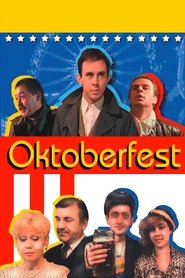 Luka Banjanin is an unemployed young...
Luka Banjanin is an unemployed young...Oktoberfest 1987
Luka Banjanin is an unemployed young man living with his parents in Belgrade. He hangs out with few devoted friends who, like him, are yet to find place in a society that discarded young intellectuals. He plays saxophone and dreams about going to Oktoberfest, the annual beer festival in Munich, but he's being unable to get passport because of a smaller drug incident he had in the past. Totally careless about his long-term girlfriend, he suddenly falls for a mysterious woman who seems to appear in the same places as him, and then vanishes as quickly as possible. Believing that he's at the wrong place at the wrong time, Luka wanders from one misadventure to another, gradually losing the contact with reality and living out his own Oktoberfest in his mind.
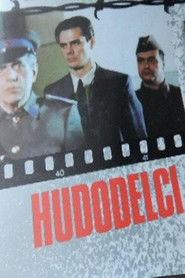 Peter Berdon Mario Seli joins a...
Peter Berdon Mario Seli joins a...The Felons 1987
Peter Berdon (Mario Selič) joins a group of Stalinists after his father is killed by the Nazis in this grim political drama. The film begins with his arrest and uses flashbacks to tell the events that led to his incarceration. His abuse is chronicled both in and out of prison after he falls in with a Bonnie and Clyde-like duo after the war is over.
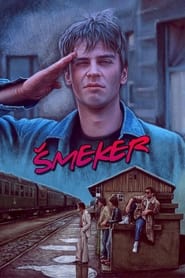 A story of a young man...
A story of a young man...Hotshot 1986
A story of a young man from the suburb, who gets his experience on the street and in bars. His girlfriend belongs to the same environment. When he goes to army, she tries to get away, giving the only thing she has - her good looks. She poses nude for some magazine. Seeing that photo, the young man escapes from the army, demanding an explanation. His return to a place where he once belonged, causes questioning of himself, discussions with so-called friends, and finally with the girl...
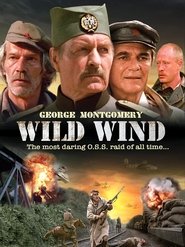 August 1943 Europe The tentacles of the...
August 1943 Europe The tentacles of the...Wild Wind 1985
August 1943, Europe. The tentacles of the German octopus have begun to recoil. As the Nazis retreat, their concern focuses on the supply of oil from the refineries of Romania. Without the flow of "black gold", Germany's doom is sealed. Armadas of American bombers from bases in North Africa have begun to assault Pioesti - and there is another threat from the Partisans across the border of Yugoslavia. Against the tableau of spectacular events, the dramatic story of WILD WIND unfolds.
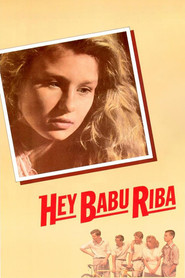 In 1985 four middleaged Yugoslav emigres return...
In 1985 four middleaged Yugoslav emigres return...Hey Babu Riba 1985
In 1985, four middle-aged Yugoslav emigres return to Belgrade for the funeral of Mariana, their beautiful compatriot. They called her Esther, for Esther Williams, she was the coxswain for their four-man rowing team, and they each loved her. They'd last seen her in 1953, when they rowed her across the Adriatic, pregnant, to join her exiled father in Italy. In flashbacks we learn the story of their youthful baptism into sex, smoking, rock and roll (Hey Ba-ba-re-bop), Hollywood and Swedish films, blue jeans on the black market, and their rivalry with Ristic, the Communist Party youth leader for whom they had instant antipathy.
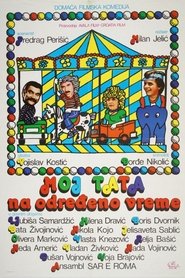 The new misadventures of single mother...
The new misadventures of single mother...My Part-Time Dad 1982
The new misadventures of single mother Svetlana, her 12 year old son and (still) part-time worker Siniša. Siniša's plans to marry Svetlana are ruined when her ex-husband comes back from Germany, persuading her to start their new life together.
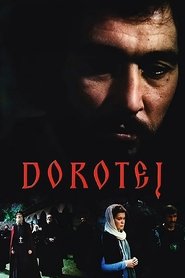 In medieval Serbia a young monk...
In medieval Serbia a young monk...Dorotheus 1981
In medieval Serbia, a young monk, a master of herbal medicine, grabs the attention of warlord's wife.
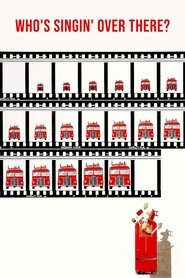 On April 5th 1941 a day before...
On April 5th 1941 a day before...Who's Singin' Over There? 1980
On April 5th, 1941, a day before the Nazi attack on the Kingdom of Yugoslavia, a colorful group of passengers is headed for Belgrade...
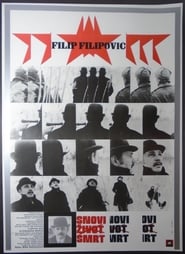 The life and death of an...
The life and death of an...Dreams, Life, Death of Filip Filipović 1980
The life and death of an educated communist activist who brought Bolshevik ideas to his native Serbia upon his arrival from Russia at the beginning of the 20th century.
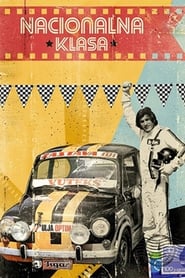 One week in life of Branimir...
One week in life of Branimir...National Class Category Up to 785ccm 1979
One week in life of Branimir Mitrovic "Floyd", a young rally driver from the National class (up to 785cc), dreaming of promotion to the higher category. He lives a carefree life of a Belgrade dandy boy, neglecting his girlfriend, avoiding his draft calls, and refusing to deal with any life responsibility in general. The decisive race on Saturday is only what he cares about.
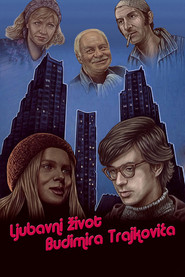 Trajkovi family are bridge builders Being...
Trajkovi family are bridge builders Being...The Love Life of Budimir Trajković 1977
Trajković family are bridge builders. Being forced to move every once in a while, the bridges are everything but pleasant thing for 17 year old Budimir, who is unable to make any permanent love relationship. In their last attempt to settle down in capital, a boy will experience love in its full meaning.
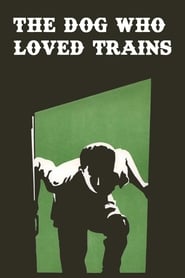 A fugitive girl a stuntman and...
A fugitive girl a stuntman and...The Dog Who Loved Trains 1977
A fugitive girl, a stuntman and a young man who lost his dog quite some time before, are joining together on a trip to reach each of their own destination. A youngster gets emotionally connected to the girl, and he'd try to help her to leave the bossy stuntman, to get false passport and escape to Paris.
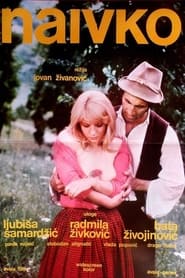 Buzga the shepherd an object of...
Buzga the shepherd an object of...A Naive Person 1975
Buzga the shepherd, an object of ridicule among his fellow villagers, discovers his painting talent and becomes famous. Their envy leads them to paint themselves and try to outperform him, but after realizing that only Buzga's paintings are valued, they decide to steal his works.
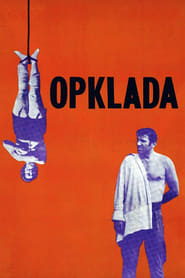 A young woman leaves her older...
A young woman leaves her older...The Bet 1971
A young woman leaves her older husband, the owner of a village mill, for a truck driver whom she met while he was in their village by business. While trying to find him, she experiences the life in suburbia, and gets back to her husband disappointed, disgraced and humiliated.
 In Vojvodina during the war a...
In Vojvodina during the war a...Zarki 1970
In Vojvodina during the war, a partisan commander Zarki fell into the hands of the local Germans. They bound him in chains and take him from one village to another, torturing him in public so he could tell the names from his movement. Bewildered by his resisting power, the Germans tend to break him down and destroy the pride which is his answer to their torture. Frenzied of powerlessness, they ultimately choose the most horrifying death - they buried him alive in the sand that will cover the last trait of him, but he died victorious: He died for his thing.
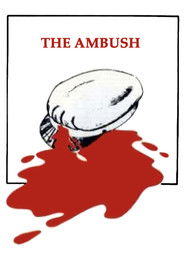 Idealistic young man supports the party...
Idealistic young man supports the party...The Ambush 1969
Idealistic young man supports the party and the new Yugoslavia's communist regime, but soon gets involved in various political and criminal machinations becoming more and more confused about what's right and what's wrong.
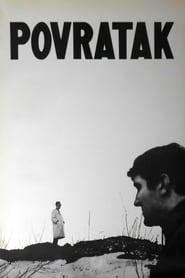 Anex convict nicknamed Al Capone who...
Anex convict nicknamed Al Capone who...The Return 1966
An-ex convict nicknamed Al Capone, who spent six years in jail, tries to adapt in new environment. Members of the two rival gangs try to engage him in their new ventures, but he wants to make a new start with the girl he loves. At the same time, a young criminal who shares the same nickname replaces him in these actions.
